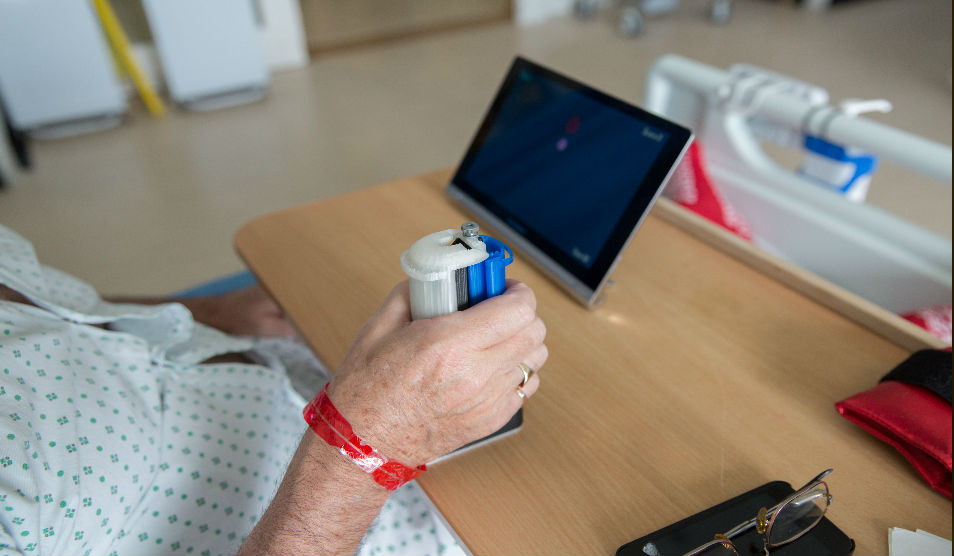New video game boosts rehabilitation for patients
Patients at Charing Cross Hospital, part of Imperial College Healthcare NHS Trust, are benefiting from playing a newly developed video game which boosts rehabilitation.
Researchers from Imperial College and clinicians at Charing Cross Hospital have designed a video game called Balloon Buddies, which is a tool that enables those recovering from conditions such as a stroke to engage and play together with healthy volunteers such as therapists and family members as a form of rehabilitation.
Balloon Buddies uses animation, sounds, and vibration-feedback, similar to conventional video games. It is played with a wireless handgrip called GripAble, enabling people with arm weakness to control video games on any standard tablet device.
Balloon Buddies has been trialled by getting patients to play it on their own in single user mode and then with healthy volunteers in dual player mode. Researchers found that the performance of the patient was boosted when they competed against a healthy volunteer, compared to if they were playing the game on their own. In addition, they found that the poorer a patient’s single player performance was, the greater the improvement seen when they competed against another during dual-player mode.
Dr Paul Bentley, Honorary Consultant Neurologist at Imperial College Healthcare NHS Trust, said: “It’s great to see our patients benefitting from playing this video game, enabling them to engage and interact with the game and another player to aid their rehabilitation. It also allows caregivers and patient to be involved with a patients care in a less conventional but positive way.”
These findings published today in the Journal of NeuroEngieering and Rehabilitation (JNER), suggest that by increasing engagement with healthy volunteers, compared to playing alone, patients may be more likely to increase the effort they put into training, which could ultimately lead to greater gains in physical performance.
Dr Michael Mace, lead author from the Department of Bioengineering at Imperial College London, said: “Video games are a great way of providing repetitive exercise to help patients recover from debilitating illnesses. However, most games are designed for users to play on their own, which can actually discourage and isolate many patients.
“We developed the Balloon Buddy game to enable patients to train with their friends, family or caregivers in a collaborative and playful manner. The technology is still being developed, but we have shown that playing jointly with another individual may lead to increased engagement and better outcomes for patients.”





